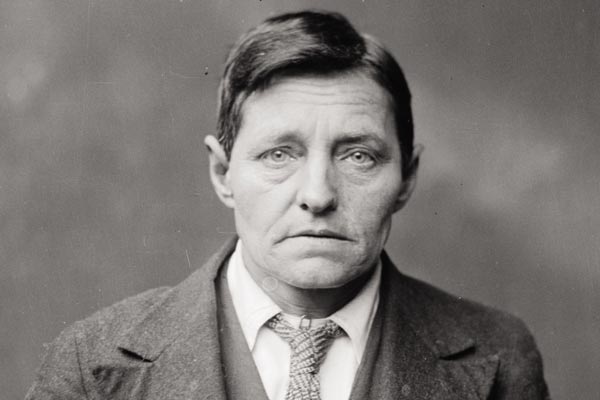'The Trouble With Harry' is a re-imagining of the true case of Eugenia Falleni (aka Harry Crawford) by Lachlan Philpott.
Set around the early 1900s, the story follows Harry Crawford (biologically born a woman) who lived in Sydney as a man, and married twice.
Director Kate Gaul tells us more.
Can you tell us a little bit about the story line?
'The Trouble with Harry' is a fictionalised account of the life of Eugenia Falleni, a transgender man who settled in Sydney in 1898, where he changed his name to Harry Crawford. In 1913, married a widow, Annie Birkett, who later died in suspicious circumstances. This is a domestic drama about the lives of Harry and Annie leading up to the tragedy.
What has been your major influence for directing the show and why are you directing it?
'The Trouble with Harry' uses a modern lens to examine a historical event. Though we may think society has progressed since around 1917, this play questions whether our attitudes to the transgender community have actually moved that far. There are references to sideshow and 'freak show' in the play and we are drawing them out to emphasise this idea.
What have been some of the major challenges that you have faced directing the show and why?
Nuance is really weaved into the text of 'Harry', so getting that right is really important. Lachlan [Philpott] has deliberately left the question of Harry’s guilt or innocence open and I think it is way more interesting to explore all the facets of Harry than to paint him simply as a devil or a saint. How long has this show been in the making and what made you decide to tell this story? I’ve known Lachlan for a long time and I love the way that he uses language to paint complex characters and situations. I’ve wanted to direct one of his plays for a while now and this seemed like the right time. We’ve linked up with Mardi Gras and are holding a forum on transgender issues, as we hope to involve the wider LGBTIQA+ community.
Based on a true story, how closely do you believe the play depicts the real life scenario of Harry Crawford?
The truth is that we may never know what actually happened between Harry and Annie, so it would be hard to base this play entirely on fact. Lachlan has managed to fill in the gaps and imagine what happened behind closed doors in the Crawford/Birkett household.
What would be your favourite scene in the show and why?
I think the final scenes are going to be very beautiful and powerful; it certainly is my favourite part of the play to read.
What is the biggest surprise about this show that the audience won't be expecting?
There is a theme of conjecture and alternate reality that is quite surprising to watch and play with. The narrator characters sometimes offer their own opinion about what happened, touching on ideas about truth and reality that are very interesting.
Who is your favourite character in the show and why?
I think the character of Josephine is really interesting because she is so torn between valuing truth, telling it as it is, while still wanting to be sensitive to an extent and preserve the family unit. She knows the power of the secret she is keeping and it’s very compelling to watch her struggle with that.
Who has been your favourite person to work with on the production of the show and why?
Everyone brings their own spark to the process. I’m working with a really talented cast and crew so it’s exciting to watch everyone come together and bounce off each other.
What sort of person is going to enjoy watching this show?
I think the play can appeal to a wide audience. It’s about someone who is keeping a potentially catastrophic secret so people that like drama, historical stories, true crime and three dimensional examinations of humanity should find 'The Trouble with Harry' compelling.
How do you think this show relates to today's challenges and politics that surround the transgender community?
I think the media can be accused of sensationalising transgender people’s relationships and bodies. Janet Mock talks about the “layer of really deep-seated internalized dehumanisation of trans people and their bodies” and this is an attitude that definitely exists in 1917’s Sydney. Harry is very conscious of public stigma and hides from it to an extent. It’s outrageous that this transphobia and 'freak show' level of curiosity still exist in society today.
'The Trouble With Harry' plays The Seymour Centre as part of Mardi Gras from 16 February-3 March.


